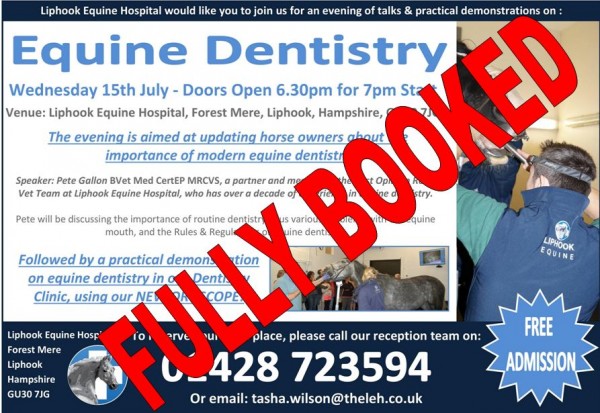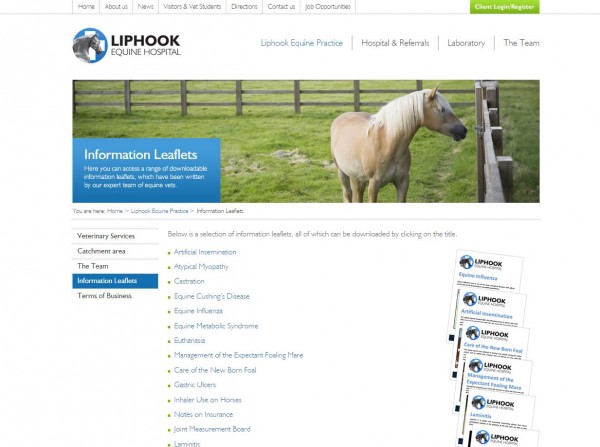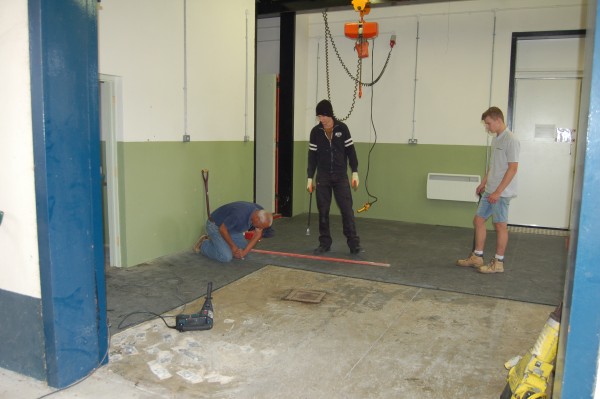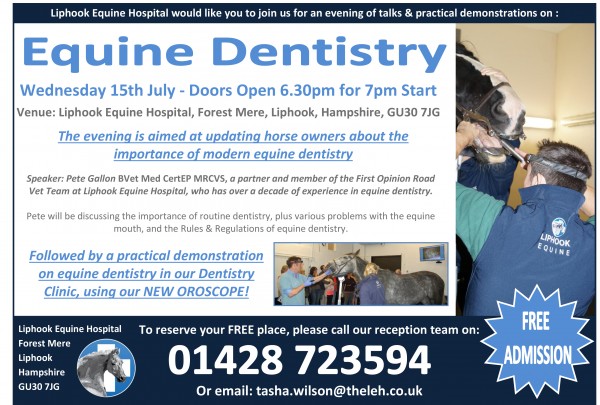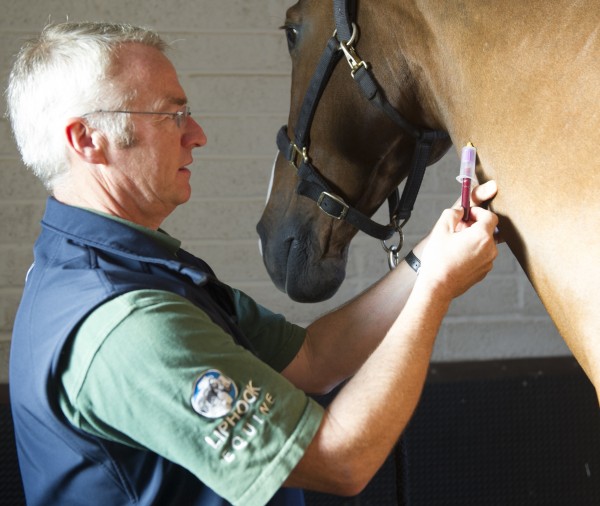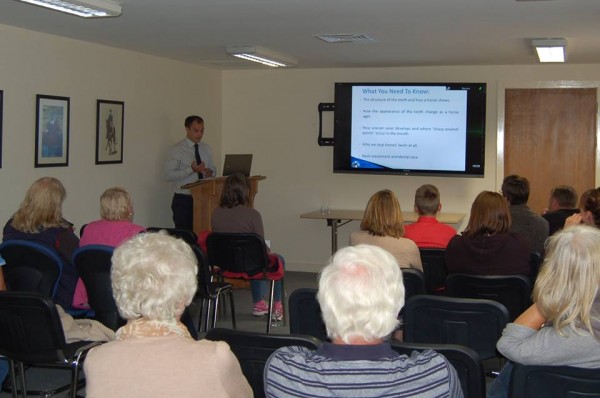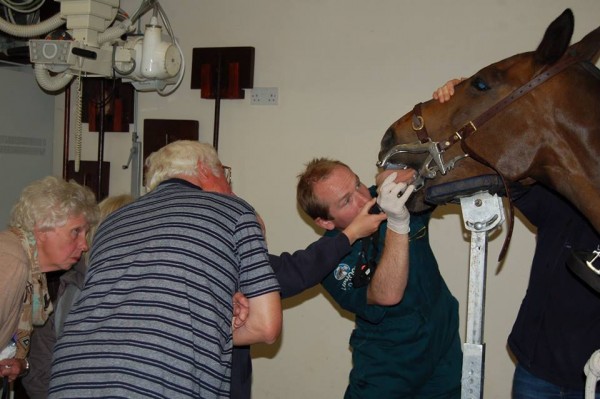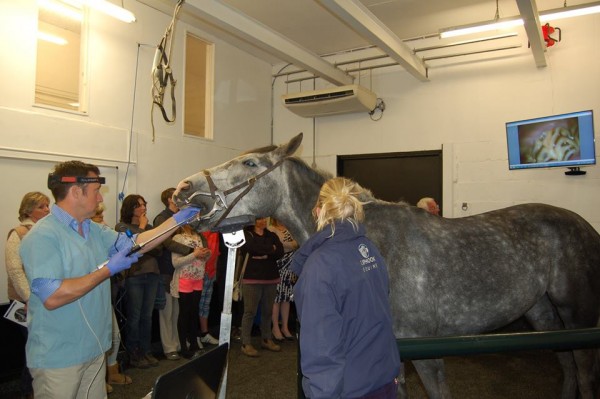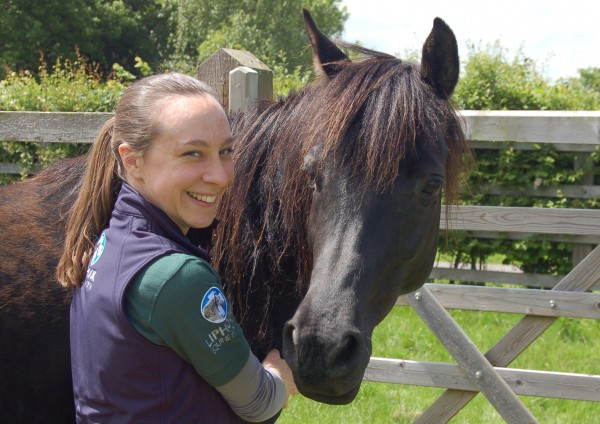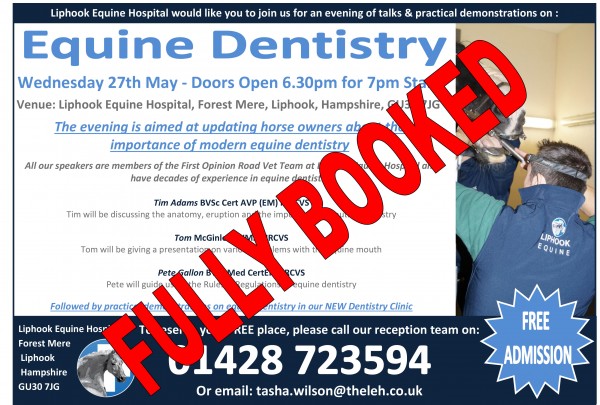We now have a reserve list, and so if you have booked a place and are unable to attend, please let us know as soon as possible, by calling 01428 723594 or by email tasha.wilson@theleh.co.uk.
News
Archive for the General Category
Here you can access a range of downloadable information leaflets, which have been written by our expert team of equine vets.
http://
Liphook Equine Hospital is excited to report that we will soon be able to offer a CT scanning service. Building of the new unit has started today and we hope to be able to start scanning horses within 3-4 months.
We are proud to be one of very few equine hospitals in the UK that will have the facilities to carry out CT imaging both in the standing horse and under general anaesthesia.
What is CT?
CT scanning uses a rotating x-ray tube to a take series of x-ray images at high speed circumferentially around the area of interest so giving an image of exquisite anatomical detail allowing the clinician to see subtle changes in bone and soft tissue related to injury and disease. The images can be reconstructed to look at the same piece of anatomy in different orientations and to create a series of detailed slices through the area of interest.
How is CT performed?
CT requires the part of the body to be imaged to be placed into the CT scanner for a short period of time (usually a few minutes). Whether the horse require sedation or general anaesthesia depends upon which part of the horse is being scanned.
Which parts of the horse can be scanned?
The Liphook Equine Hospital plans to install the only large bore (bariatric) CT scanner available for use in horses in the UK. This will allow us not only to scan heads and lower limbs but also mean that we will be able to scan the complete neck of adult horses, the whole body of foals and the proximal parts of the limbs, including stifles.
Wednesday 15TH July – Doors open 6.30pm for 7pm start
The evening is aimed at updating horse owners about the importance of modern equine dentistry.
If your horse or pony is prone to laminitis, it’s important to test for Cushing’s disease. 9 out of 10 laminitis cases are caused by an underlying hormonal disease. And despite the common perception that Cushing’s disease is solely a condition of older horses and ponies, new data shows that up to one-third of 10 to 15 year-olds may be affected.
The hugely successful ‘Talk About Laminitis’ has returned. Over the past three years, thousands of horses and ponies have benefited from being tested for PPID through the Talk About Laminitis initiative. It’s designed to help you and your vet detect these cases, treat them and prevent future episodes.
From now to the end of October FREE blood test vouchers (which are now paperless) are available at:
http://www.talkaboutlaminitis.co.uk/.
The horse must not have been previously diagnosed with Cushing’s Disease.
Journey and take blood fees still apply.
Thursday 9th July 2015
Doors Open 6.30pm / Prompt 7pm Start
Venue: Liphook Equine Hospital, Forest Mere, Liphook, GU30 7JG
We are delighted to have teamed up with the Donkey Sanctuary to hold an evening of talks all about donkeys. Two guest speakers from the Donkey Sanctuary, Anna Harrison MRCVS, and Mark Kerr, a Donkey Welfare Advisor for our area, will be discussing what the Donkey Sanctuary does, how donkeys are different to horses, general care and common diseases. Plus they will be available to answer any questions.
The evening will also include refreshments, plus a raffle with all proceeds going to the Donkey Sanctuary.
All Welcome!
To reserve your FREE place, please call our reception team on: 01428 723594, or email: tasha.wilson@theleh.co.uk
Attendees where treated to three short talks given by members of our First Opinion Road Vet Team (Pete Gallon, Tom McGinley and Tim Adams),who are all highly experienced in equine dentistry.
The talks explained the rules and regulations surrounding who is able to do what to our horses teeth; the structure and composition of horses teeth and common issues that might occur in your horse’s mouth.
Following the talks the group assembled in our NEW Dentistry Clinic where Pete Gallon performed a dental examination using an oroscope, which is a small camera that gives a magnified and accurate picture of the inside of the mouth and which allowed attendees to see for themselves on a TV screen images of the horse’s mouth and witness some of the things that had been discussed earlier.
The group was then split into three, for practical sessions observing dental treatment on real cases.
We hope to repeat the evening in due course. If you would like your name added to the list, please email tasha.wilson@theleh.co.uk, or call our reception team on 01428 723594
Nathalie graduated from Liverpool University in 2011 having intercalated in veterinary pathology. She has since spent the last 4 years working in a mixed practice in the Midlands.
In her spare time Nathalie enjoys reading, running and yoga.
What is a Housevet:
Housevets are qualified veterinary surgeons who work as part of the hospital team to assist the specialist senior clinicians in the work up and care of horses referred to the hospital. They are an essential part of the team to ensure the optimal care of inpatients (and their owners!). Our housevets have all had previous experience in veterinary practice and have elected to undertake further training in a specialist referral hospital to improve their skills and knowledge in equine medicine and surgery. We currently employ 4 housevets, each on an 18 month fixed contract. During their internship at the Liphook Equine Hospital they work hard ( and usually play hard!) and develop a broad range of experience in elective and emergency equine care. Many of our former housevets have gone onto further specialist training (residency programs) and become registered specialists or into general equine practice.
News

